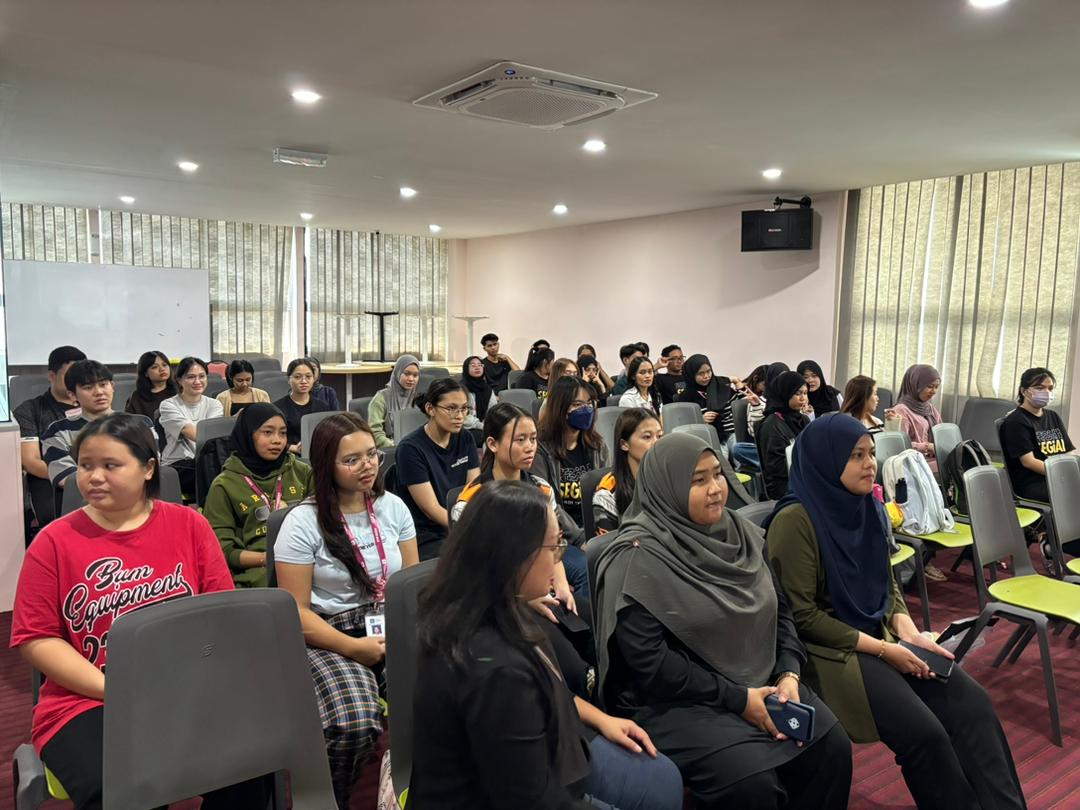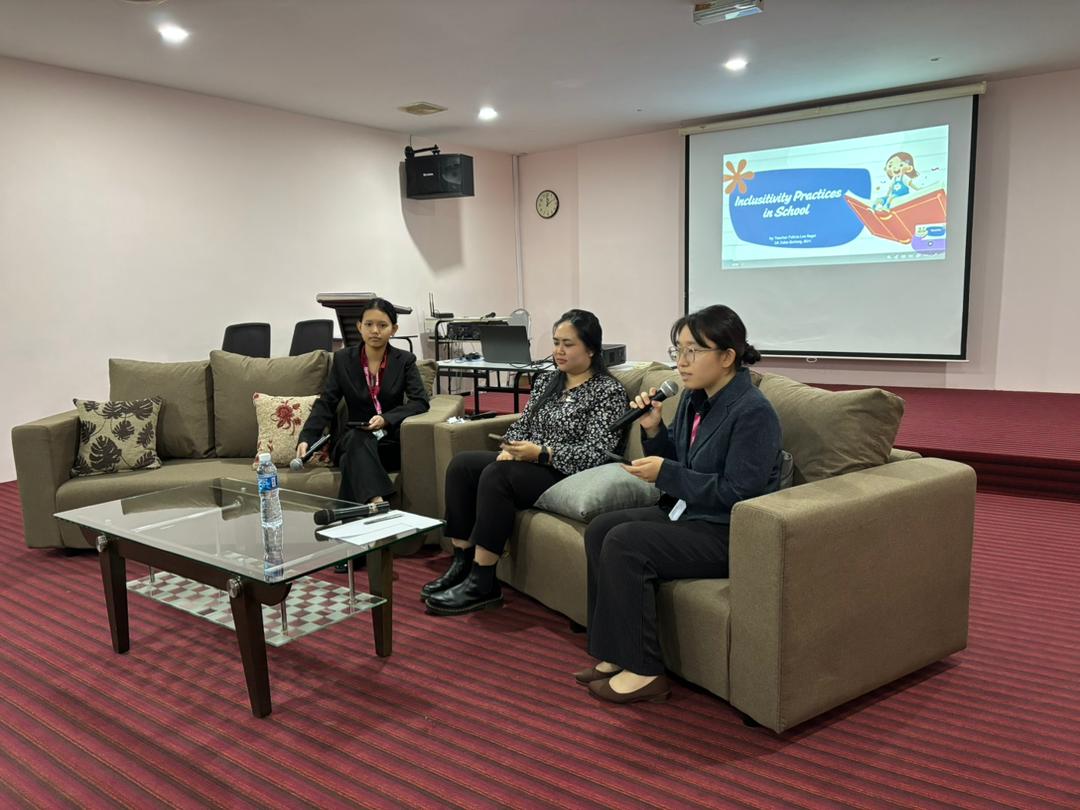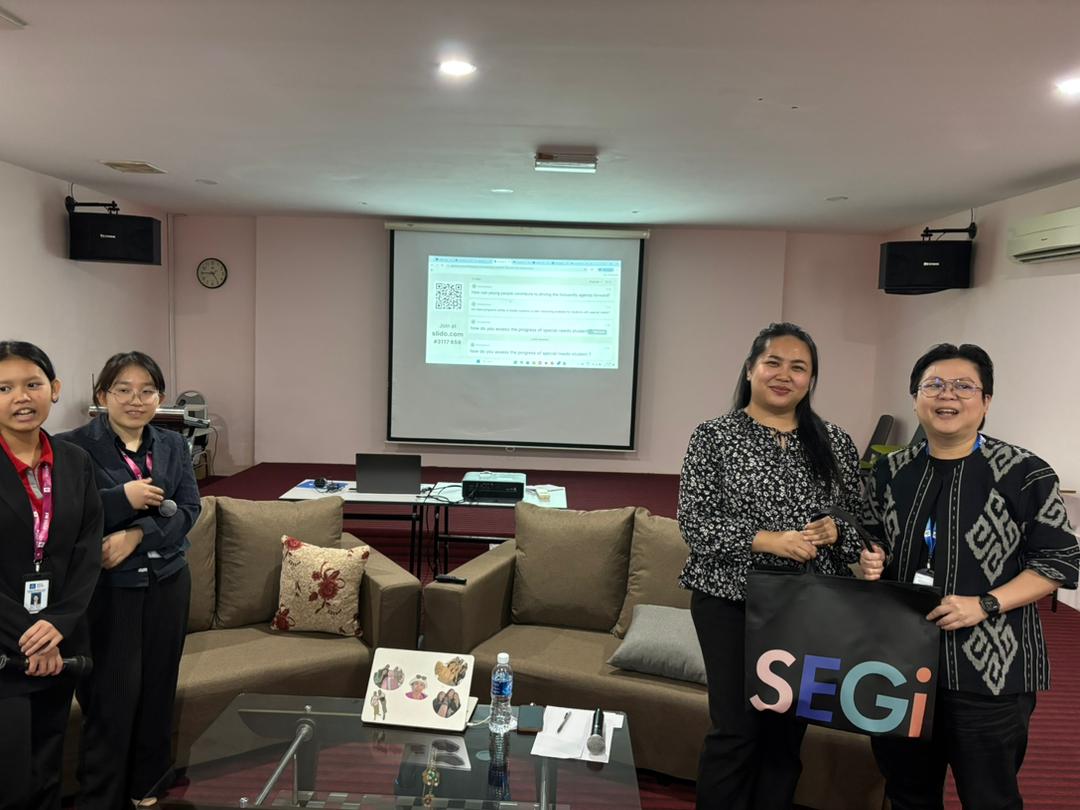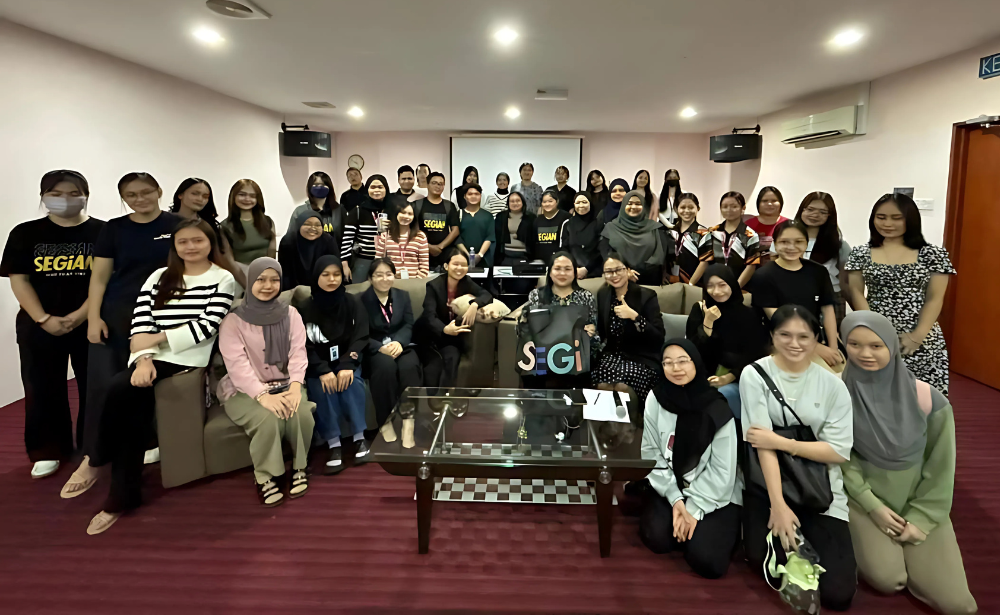Future educators and psychologists from SEGi gained powerful insights into building a more compassionate and inclusive Malaysia during a recent session titled “Breaking Barriers: The Role of Inclusivity in Shaping Malaysia’s Future”, held on 18 July 2025. The session, attended by 50 Diploma in Early Childhood Education and Diploma in Psychology students, was both a learning platform and a call to action—encouraging students to be agents of change within their communities.
Moderated by two first-year students, the event featured speaker Felicia Loo Ragai, who shed light on Malaysia’s progress and ongoing struggles in creating an inclusive society. From challenges faced by people with disabilities to the socio-economic gaps experienced by marginalised communities, the session highlighted the importance of embedding inclusivity into education and mental health frameworks. According to the Department of Statistics Malaysia, persons with disabilities make up approximately 1.3 million of the population, yet they remain underrepresented in both education and employment sectors.
Felicia shared how inclusive practices—when implemented holistically—have the power to change lives, particularly when adopted early in childhood education and psychological support systems. Her session drew attention to the role of future professionals in shaping policies, attitudes, and environments that ensure no one is left behind. Globally, UNESCO notes that inclusive education is essential for achieving equity in learning outcomes and for promoting peaceful, democratic societies.
This initiative is part of SEGi College Sarawak’s broader efforts to equip students with more than just academic knowledge. By embedding social awareness into its teaching and learning experiences, SEGi is cultivating graduates who are socially responsible, empathetic, and future-ready. The discussion also included real-world applications, such as inclusive curriculum design, adaptive classroom strategies, and promoting mental health inclusivity—topics that directly relate to the students’ future roles in early education and psychological services.
Students left the session with renewed purpose, enriched by a lively Q&A that sparked critical conversations about advocacy, accessibility, and systemic reform. The experience reinforced the belief that inclusion is not a one-time intervention, but a lifelong mindset essential for nation-building.
This event is organised in support of the following United Nations Sustainable Development Goals (SDG):
SDG 4 (Quality Education)
SDG 10 (Reduced Inequalities)
SDG 16 (Peace, Justice and Strong Institutions)




